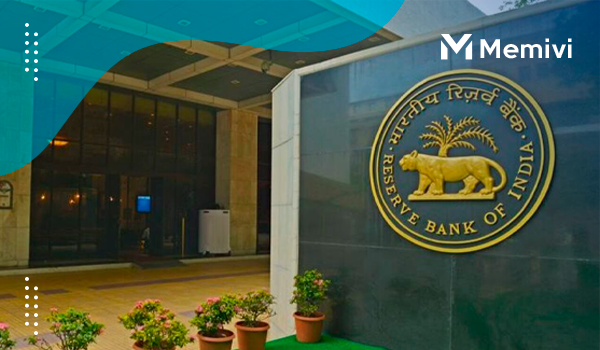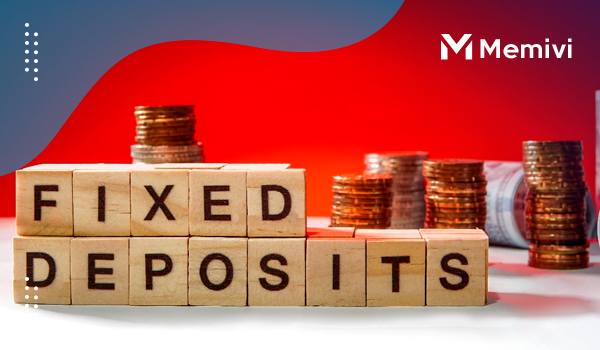
A strong economy does not always guarantee good returns on investments. In fact, it can often lead investors to overlook potential risks and make hasty investment decisions. The paradox of investing in a strong economy is that it can be a double-edged sword. There are many factors that can influence the success or failure of an investment, regardless of the strength of the economy.
In this post, we will explore why investors should approach a strong economy with caution, what factors to consider when investing, and how to navigate the paradox of investing in a strong economy.
Understanding the paradox: The Dangers of Complacency
In a strong economy, it’s easy for investors to become complacent. The allure of rising stock prices and booming industries can create a false sense of security. However, it’s important to understand the paradox of a strong economy and the dangers that come with it.
One of the main dangers of complacency in a strong economy is the potential for overconfidence. Investors may start taking on more risk, assuming that the good times will continue indefinitely. They may overlook warning signs or dismiss the importance of conducting thorough research and analysis before making investment decisions.
Another danger is the temptation to chase short-term gains. In a strong economy, it’s not uncommon for certain sectors or companies to experience rapid growth. This can lead investors to jump on the bandwagon without fully considering the long-term sustainability of these investments. It’s crucial to remember that market conditions can change quickly, and a strong economy today does not guarantee continued success in the future.
The illusion of invincibility: Recognizing The Cyclic Nature of Economies
It is easy to get caught up in the excitement and optimism that comes with a thriving economy. Rising stock prices, increased consumer spending, and a general sense of economic stability can create a false sense of security. Investors may believe that the good times will continue indefinitely and that their investments will only continue to flourish.
However, history has shown us time and time again that economic cycles are inevitable. Just as there are periods of expansion and growth, there are also periods of contraction and decline. Economic downturns can be triggered by various factors such as changes in government policies, shifts in global markets, or unforeseen events.
By recognizing the cyclic nature of economies, investors can better prepare themselves for potential downturns. It is essential to maintain a balanced and diversified portfolio that can withstand the ups and downs of the market. Additionally, staying informed about economic indicators and trends can help investors make more informed decisions.
The risk of overconfidence: How a strong economy can lead to risky behavior?
When the economy is thriving, it’s easy to become complacent and assume that the good times will continue indefinitely. This overconfidence often leads investors to take on more risk than they should, chasing higher returns without fully considering the potential downsides.
During periods of economic strength, asset prices tend to rise, and speculative investments may appear more attractive. This can tempt investors to allocate a larger portion of their portfolios to these riskier assets, such as stocks with high valuations or volatile cryptocurrencies.
Unfortunately, this overconfidence can blind investors to the inherent risks involved. It’s crucial to remember that even in a strong economy, market downturns and unforeseen events can occur.
Overexposure to risky assets can leave investors vulnerable to significant losses when the tides inevitably turn.
Moreover, the risk of overconfidence extends beyond asset allocation. In a strong economy, investors may also become less diligent in conducting thorough research and due diligence before making investment decisions.
They may rely too heavily on past performance or the prevailing market sentiment, neglecting to assess the underlying fundamentals of the investments they are considering.
The importance of diversification: Protecting your investments during economic booms

During times of economic prosperity and market upswings, it can be tempting for investors to become complacent and solely focus on the potential for high returns.
However, it is crucial to remember the age-old adage: “Don’t put all your eggs in one basket.” This is where the importance of diversification comes into play.
Diversification is a risk management strategy that involves spreading investments across different asset classes, industries, and geographical regions.
By doing so, investors can reduce their exposure to any single investment or sector, thereby protecting their portfolio from the potential pitfalls of economic booms. When an economy is thriving, certain sectors may experience rapid growth and significant returns.
However, this growth may not be sustainable in the long run. By diversifying investments across various industries, such as technology, healthcare, real estate, and energy, investors can mitigate the risk of being too heavily reliant on a single sector’s performance.
Furthermore, diversification can extend beyond asset classes and sectors to include geographical diversification. Investing in international markets can provide exposure to different economic cycles, political systems, and consumer behaviors.
This can help to offset any adverse effects that may arise from a strong economy in a particular country or region.
Strategies for navigating the paradox: Adjusting investment strategies in a strong economy
In a strong economy, it may seem like the perfect time for investors to jump in and make significant gains. However, it is crucial to approach this paradox with caution and adjust investment strategies accordingly.
Here are some effective strategies for navigating the complexities of a robust economic environment.
- Diversify your portfolio: While a strong economy can offer various lucrative investment opportunities, it is essential to spread your investments across different asset classes. Diversification helps mitigate risks and provides a safety net if one sector or industry experiences a downturn.
- Focus on defensive stocks: As the economy thrives, it’s wise to consider investing in defensive stocks, which are typically less susceptible to economic fluctuations. These stocks belong to industries like healthcare, utilities, and consumer staples, where demand tends to remain stable even during tough economic times.
- Monitor interest rates: In a strong economy, interest rates may rise as central banks attempt to control inflation. Higher interest rates can impact different sectors differently, so it’s vital to keep a close eye on these changes and adjust your investment strategy accordingly. For instance, rising interest rates can negatively affect industries such as real estate and utilities.
- Stay informed about market trends: A strong economy often leads to increased market volatility and changing trends. Regularly monitoring market indicators, economic reports, and financial news can provide valuable insights into potential investment opportunities and risks. Staying informed allows you to make informed decisions based on the current market conditions.
- Seek professional advice: Navigating the complexities of a strong economy can be challenging, especially for individual investors. Seeking guidance from a financial advisor or investment professional can help you develop a tailored investment strategy that aligns with your financial goals and risk tolerance. While a strong economy may present promising investment prospects, it is crucial to remain cautious and adapt investment strategies accordingly.
By diversifying your portfolio, focusing on defensive stocks, monitoring interest rates, staying informed about market trends, and seeking expert advice, you can navigate the paradox and position yourself for long-term success in any economic climate.
Final Thoughts
Balancing optimism and caution requires a disciplined approach to investing. It is about acknowledging the potential rewards that a strong economy offers while being mindful of the inherent risks and uncertainties. By striking this equilibrium, investors can position themselves to make informed decisions, protect their assets, and navigate the paradox of a strong economy with confidence.



 RBI Continues With A Pause On Rate Hikes Amid Focus On Curbing Inflation <p class='sec-title' style='line-height: normal; font-weight: normal;font-size: 16px !important; text-align: left;margin-top: 8px;margin-bottom: 0px !important;'> Staying the Course: RBI Holds Rates Steady in Efforts to Tackle Inflation. Get the Inside Scoop on India's Monetary Policy. </p>
RBI Continues With A Pause On Rate Hikes Amid Focus On Curbing Inflation <p class='sec-title' style='line-height: normal; font-weight: normal;font-size: 16px !important; text-align: left;margin-top: 8px;margin-bottom: 0px !important;'> Staying the Course: RBI Holds Rates Steady in Efforts to Tackle Inflation. Get the Inside Scoop on India's Monetary Policy. </p>  The Future is Now: A Guide on How to Invest in AI <p class='sec-title' style='line-height: normal; font-weight: normal;font-size: 16px !important; text-align: left;margin-top: 8px;margin-bottom: 0px !important;'> Your Trusted Source for AI Investment Guidance: Let's Navigate the Future Together. Explore AI Opportunities Today </p>
The Future is Now: A Guide on How to Invest in AI <p class='sec-title' style='line-height: normal; font-weight: normal;font-size: 16px !important; text-align: left;margin-top: 8px;margin-bottom: 0px !important;'> Your Trusted Source for AI Investment Guidance: Let's Navigate the Future Together. Explore AI Opportunities Today </p>  8 Best Alternatives to Fixed Deposits in India <p class='sec-title' style='line-height: normal; font-weight: normal;font-size: 16px !important; text-align: left;margin-top: 8px;margin-bottom: 0px !important;'> Say goodbye to traditional fixed deposits! Explore the 8 best alternatives in India to grow your savings and investments. </p>
8 Best Alternatives to Fixed Deposits in India <p class='sec-title' style='line-height: normal; font-weight: normal;font-size: 16px !important; text-align: left;margin-top: 8px;margin-bottom: 0px !important;'> Say goodbye to traditional fixed deposits! Explore the 8 best alternatives in India to grow your savings and investments. </p>